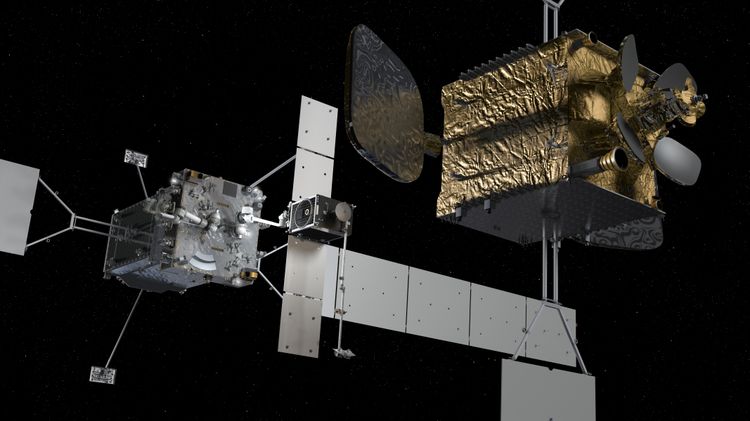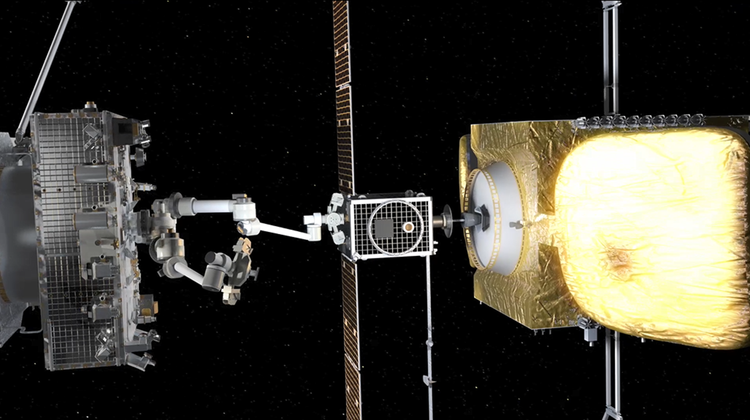
Northrop Grumman announced on February 21 that its subsidiary, SpaceLogistics, received the company’s first purchase of the Mission Extension Pod by Australian satellite operator Optus.
SpaceLogistics will launch three Mission Extension Pods (MEPs) with its Mission Robotic Vehicle (MRV) to Geostationary Orbit (GEO) on a SpaceX rocket in 2024. Instead of providing a service to us here on the ground, the MRV and its gang of MEPs will service satellites already in GEO.
This isn’t the first time Northrop Grumman has serviced GEO satellites like this. The company launched two Mission Extension Vehicles, MEV-1 and MEV-2, in 2019 and 2020. These spacecraft serviced two Intelsat satellites by latching onto the spacecraft’s engine bell. The MRV and MEPs will do the same thing but are more streamlined.
Instead of an entire vehicle latching onto a spacecraft as a one-time use system, the MRV will robotically attach a single MEP onto the desired spacecraft then move onto the next one, allowing multiple geostationary satellites to be serviced.
SpaceLogistics will conduct the MRV missions and the MEPs will be owned and operated by the satellite company purchasing the service. A single MEP can extend a spacecraft’s lifespan by six years.

Why is this important?
Satellites in GEO are not small or cheap like some in Low Earth Orbit. These huge and expensive satellites take a long time and a lot of work to get built and operational, and they are usually limited by their onboard fuel.
To use an Earth-based analogy, SpaceLogistics is providing a gas station in space, but instead of going to the pump, the pump comes to you. This allows companies to use their GEO spacecraft longer and save money in building a new satellite to replace the old one. This also will reduce the number of dead satellites headed for ultra-high “graveyard orbits.”
SpaceLogistics expects to sell more of these extension missions and states it has sold all of its slots for 2025 and most for 2026.
Enjoy reading Space Explored?
Help others find us by following on Apple News and Google News. Be sure to check us out on YouTube, Twitter, Facebook, and Instagram, join our Discord!
FTC: We use income earning auto affiliate links. More.

Comments